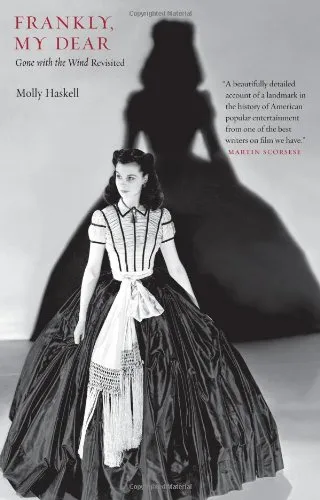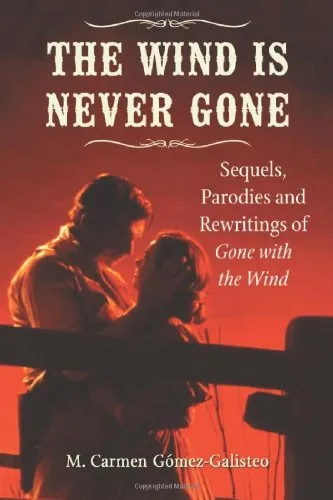Frankly, My Dear: "Gone with the Wind" Revisited
3.5
Reviews from our users

You Can Ask your questions from this book's AI after Login
Each download or ask from book AI costs 2 points. To earn more free points, please visit the Points Guide Page and complete some valuable actions.Related Refrences:
Introduction to "Frankly, My Dear: 'Gone with the Wind' Revisited"
Molly Haskell's "Frankly, My Dear: 'Gone with the Wind' Revisited" offers an insightful and thorough analysis of one of America’s most iconic and controversial films—"Gone with the Wind." This book dives deep into the cultural, historical, and personal implications of the film and the novel it was based upon, providing readers with a nuanced perspective on its enduring legacy.
Detailed Summary of the Book
In "Frankly, My Dear: 'Gone with the Wind' Revisited," Molly Haskell embarks on an exploration of the staggering impact and the mythical stature of both the 1936 novel by Margaret Mitchell and its 1939 cinematic adaptation. She delves into the contextual backdrop of the American South during the Civil War era and the transformative identity undergoings—specifically through the microcosm of Scarlett O'Hara's journey from Southern belle to a strong-willed individualist.
Haskell approaches "Gone with the Wind" with both reverence and critical scrutiny. She examines the work's racial and gender politics, exploring the dichotomy between its romanticized depiction of the Old South and the harsh realities it represented. Additionally, Haskell assesses the personal stories and controversies of the filmmakers and actors, which are crucial to understanding the complexities surrounding its production and cultural reception.
Key Takeaways
- Understanding "Gone with the Wind" requires a multi-layered interpretation that considers historical, social, and cultural contexts.
- The film, despite its problematic elements, remains a pivotal piece of film history for its monumental technical achievements and narrative scope.
- Molly Haskell emphasizes the evolving interpretations of the film and novel over time, highlighting how these reflect broader societal changes.
- Haskell advocates a critical engagement with the film rather than outright dismissal or uncritical celebration, offering a rounded view of its significance.
Famous Quotes from the Book
"Scarlett O'Hara remains a fascinating paradox: a personal success against the backdrop of a collapsed world."
"To revisit 'Gone with the Wind' is to confront both its brilliance and its blindness."
Why This Book Matters
"Frankly, My Dear: 'Gone with the Wind' Revisited" holds immense significance as it not only offers an academic critique but also revives the conversation about how we view historical narratives and their cinematic portrayals. Haskell's work is critical for understanding the dynamics of how films shape and are shaped by societal attitudes over time. Particularly in a modern context, where discussions about race and representation in media are more pertinent than ever, her analysis offers valuable insights into the ongoing debate about cultural artifacts from our past and how they should be viewed in the present.
For fans and critics of "Gone with the Wind" alike, Haskell's book serves as an essential guide to unpacking the reasons behind the film's lasting influence and the myriad interpretations it allows. Her balanced approach encourages readers to think critically about the media they consume and the historical contexts informing their narratives.
Free Direct Download
You Can Download this book after Login
Accessing books through legal platforms and public libraries not only supports the rights of authors and publishers but also contributes to the sustainability of reading culture. Before downloading, please take a moment to consider these options.
Find this book on other platforms:
WorldCat helps you find books in libraries worldwide.
See ratings, reviews, and discussions on Goodreads.
Find and buy rare or used books on AbeBooks.
1352
بازدید3.5
امتیاز50
نظر98%
رضایتReviews:
3.5
Based on 0 users review
"کیفیت چاپ عالی بود، خیلی راضیام"
Questions & Answers
Ask questions about this book or help others by answering
No questions yet. Be the first to ask!



